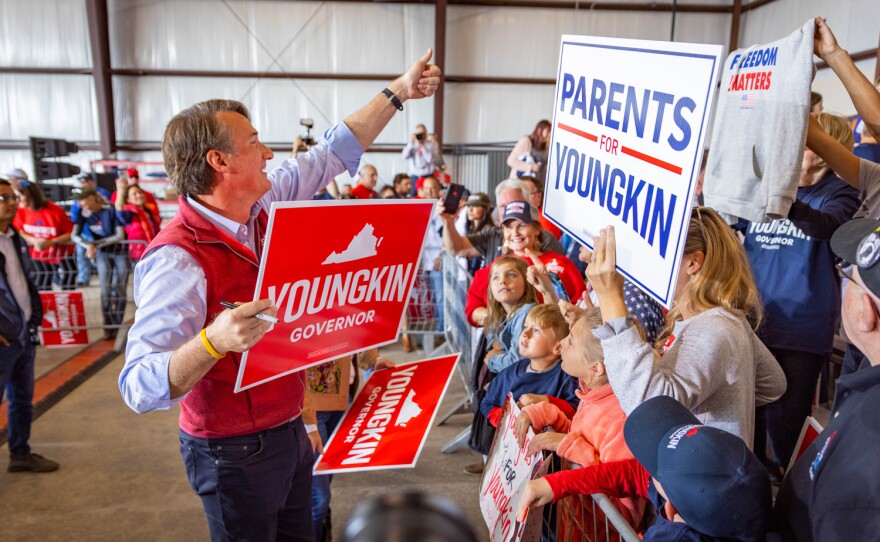Gov. Glenn Youngkin’s office quietly shut down an email address he’d touted as a way for parents to directly reach his office, his spokesperson said Thursday.
“The help education email was deactivated in September, as it had received little to no volume during that time,” spokesperson Macaulay Porter said in an email. “Constituents are always able to confidentially reach out to the governor’s office through various constituent service methods.”
Porter did not respond to follow-up questions, including on asking for clarification on what she meant by “that time.”
Youngkin announced the email address in an appearance with conservative talk show host John Fredricks on Jan. 24, shortly after his inauguration.
“We have set up a particular email address, called [email protected], for parents to send us any instances where they feel that their fundamental rights are being violated, where their children are not being respected, where there are inherently divisive practices in their schools,” Youngkin said.
The announcement was cheered by some Youngkin supporters as an instance of him making good on campaign promises to put “parents first” and end the teaching of “divisive concepts.”
But it also sparked an immediate backlash with critics dismissing it as an Orwellian “snitch line” designed to discourage frank classroom discussions of race. Some activists and parents said they’d submitted emails attacking or mocking the system.
Del. Don Scott, the top Democrat in Virginia’s House of Delegates, said the tip line’s demise was proof the concept had been “an abject failure.”
“What they did made Virginia and the governor a laughingstock of the nation,” Scott said.
Axios first reported Thursday the address was bouncing emails. VPM News confirmed its closure with Porter.
The Youngkin administration refused various public-records requests to see what people submitted. A group of media organizations, including NPR, sued Youngkin’s office, arguing it had misconstrued public records law.
The administration released 350 emails as part of a settlement with the media outlets. The emails in the settlement included recipients outside Youngkin’s office, including the Virginia Department of Education, the Virginia Board of Education and local school officials.
The content of the emails includes:
- A Spotsylvania County parent who claimed materials in seven books are “grooming in nature.”
- Repeated criticism of state policies from Kandise Lucas, a special education advocate.
- A doctor who said Youngkin was “lying to the public” by claiming scientific evidence supported optional masking for students.
- A Montgomery County student who objected to a teacher’s discussion of the Old English epic poem “Beowulf.” “She tries to make us believe that every scenario in the book is sexist in some way. Nobody besides her reads the book and sees anything sexist about it,” the student said.
- Criticism from a redacted email address regarding the teaching of “gender identity” at Fairfax County schools that urged the governor “to prohibit any mention or instruction on Gender Identity issues anywhere in Virginia.”
- Several statements from members of activist groups in Loudoun and Fairfax Counties complaining about the district’s enforcement of masking rules.
- Praise for two teachers in Loudoun County: “My hope is one outcome of this tip line is the creation of a list of the teachers on the front lines who make a difference.”
It’s not clear how representative the emails are of the broader pool of responses; Porter declined to say how many total emails they received.
“Just imagine what he didn’t turn over,” Scott said.
Megan Rhyne, executive director of the Virginia Coalition of Open Government, noted that the settlement had allowed the administration’s sweeping use of the working papers exemption to public record laws to go unchallenged.
“Glass half-full or half-empty?” Rhyne tweeted.



